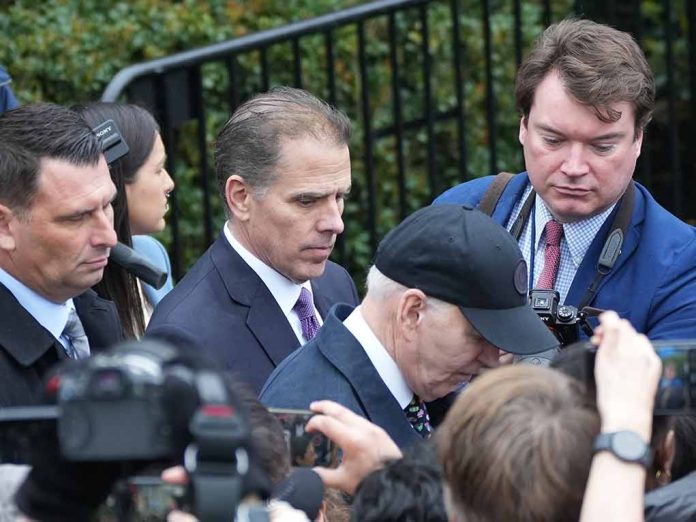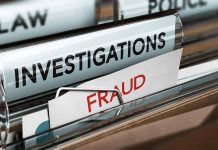
President Joe Biden’s decision to pardon his son Hunter has ignited a firestorm of controversy, challenging his previous assertions of non-interference in his son’s legal matters.
At a Glance
- President Biden pardoned Hunter Biden for federal gun and tax evasion charges
- The pardon contradicts Biden’s previous statements that he would not intervene
- Hunter Biden faced significant legal penalties, including potential prison sentences
- The decision has sparked backlash from Republicans and some Democrats
- Biden justified the pardon by claiming his son was “singled out” and unfairly prosecuted
Biden’s Controversial Decision
In a move that has sent shockwaves through Washington, President Joe Biden signed a pardon for his son Hunter on Sunday, following Hunter’s convictions on federal gun charges and tax evasion. The President’s action marks a stark reversal from his previous statements, where he had repeatedly assured the public that he would not interfere in his son’s legal matters.
“I said I’d abide by the jury decision, and I will do that. And I will not pardon him,” Biden said earlier this year.
The pardon covers incidents recorded from January 1, 2014, to December 1, 2024, effectively clearing Hunter Biden of all legal troubles. This decision comes in the wake of a collapsed plea deal involving Hunter, who has been entangled in various legal disputes, including a federal gun charge and accusations concerning unpaid taxes.
Biden’s Justification and Public Reaction
President Biden defended his decision, stating that his son had been “singled out” and calling the cases “a miscarriage of justice.” In his statement, the President claimed that politics had influenced the justice process, leading to unfair prosecution of his son.
The decision has sparked intense backlash from senior Republicans and even some Democrats. Critics argue that this move undermines the rule of law and demonstrates preferential treatment for those in power. IRS whistleblowers criticized the pardon as showing “special privilege for the powerful.”
Community Notes slays pic.twitter.com/QNZfUIcNPl
— Elon Musk (@elonmusk) December 2, 2024
Hunter Biden’s Response
In response to the pardon, Hunter Biden expressed gratitude and committed to helping others struggling with addiction. He acknowledged his past mistakes but maintained that he has been sober for over five years.
In a statement released by his legal team to news outlets, Hunter said, “I have admitted and taken responsibility for my mistakes during the darkest days of my addiction — mistakes that have been exploited to publicly humiliate and shame me and my family for political sport.”
The pardon not only clears Hunter of the gun and tax charges but also prevents him from facing potential foreign-lobbying charges related to the Foreign Agents Registration Act. This aspect of the pardon has drawn particular scrutiny, given Hunter’s past involvement with Ukrainian gas company Burisma Holdings and Chinese firm BHR Partners.
Political Implications
The timing of this pardon, following President-elect Donald Trump’s recent election victory, has led to speculation about its political motivations. Trump himself has criticized the decision, linking it to the ongoing controversy surrounding the January 6th Capitol riot.
Reacting to the pardon, President-elect Trump said, “Does the Pardon given by Joe to Hunter include the [6 January] Hostages, who have now been imprisoned for years? Such an abuse and miscarriage of Justice!”
House Republicans, who had previously attempted to use Hunter’s business dealings as grounds for impeaching President Biden, have renewed their criticisms. House Oversight Committee Chairman James Comer accused Joe Biden of not only lying about his family’s business dealings, but also about pardoning his son.
As the controversy unfolds, many are questioning the long-term implications of this decision on Joe Biden’s legacy and the broader political landscape. While not unprecedented – past presidents have pardoned family members – the scale and timing of this pardon have thrust it into the center of national debate, likely to remain a contentious issue in the coming months.






















